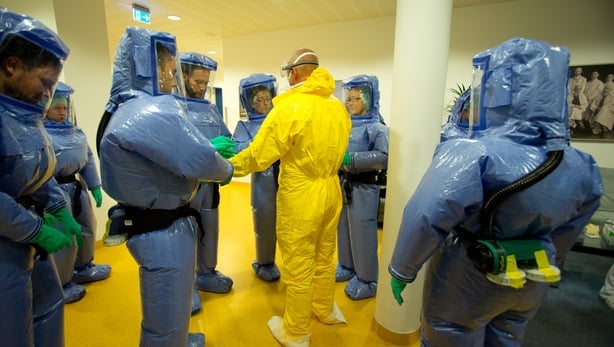The World Health Organisation said today that Europe would almost certainly see more cases of Ebola, after a nurse in Spain became the first person known to have caught the virus outside Africa.
With concerns growing globally that the worst Ebola outbreak on record could spread beyond West Africa, where it has killed more than 3,400 people in three impoverished countries, Spanish officials tried to reassure the public they were tackling the threat.
Health experts said the chances were slim of a full-blown outbreak outside Africa.
Rafael Perez-Santamaria, head of the Carlos III Hospital in Madrid, where the infected nurse, Teresa Romero, had treated two Spanish missionaries who had contracted the disease in West Africa, said medical staff were "revising our protocols".

Four people including the nurse's husband were admitted to hospital for observation.
One of the four, another nurse, who had diarrhoea but no fever, tested negative for the virus, a Spanish health source said.
Madrid's regional government said it had ordered a dog belonging to Ms Romero and her husband put down, despite the husband's opposition.
"The existence of this pet which has been in the home and in close contact with the patient affected by the Ebola virus ...presents a possible transmission risk to humans," a statement said.
It would be killed in such way as to spare it any suffering and then be incinerated, the authorities said.
Even though western European hospitals, unlike most of those in the affected parts of Africa, have the facilities to isolate an infected patient, WHO European director Zsuzsanna Jakab said it was "quite unavoidable ... that such incidents will happen in the future because of the extensive travel from Europe to the affected countries and the other way around".
Nevertheless, she said that "the most important thing in our view is that Europe is still at low risk, and that the western part of the European region particularly is the best prepared in the world to respond to viral haemorrhagic fevers including Ebola".
Still, health authorities in the developed world are being forced to re-examine their alertness to a disease that has been raging through Guinea, Sierra Leone and Liberia since March, killing more than half of those it infects.
Nurse Romero had gone on holiday to Madrid, after the second of her Ebola patients died on 25 September, but did not start feeling ill until 30 September.
Her trade union said she had then asked three times to be tested for Ebola before the infection was finally confirmed on 6 October.

